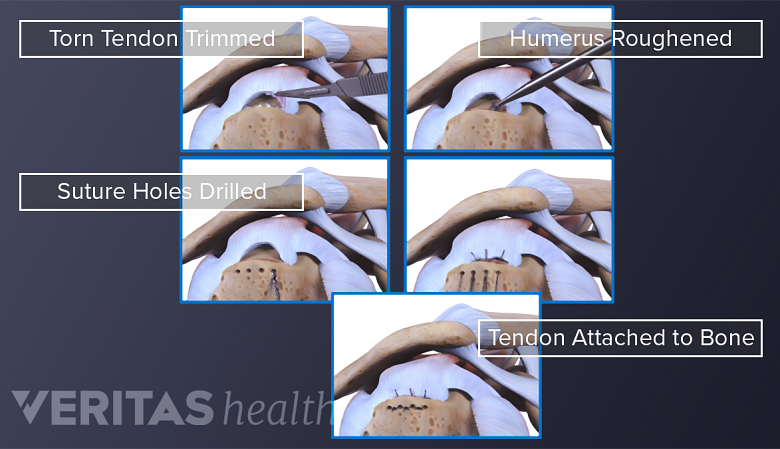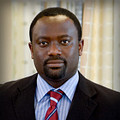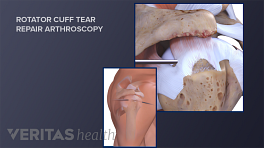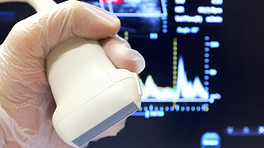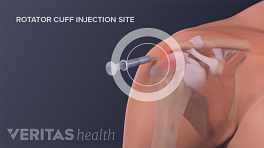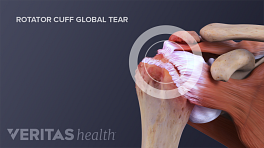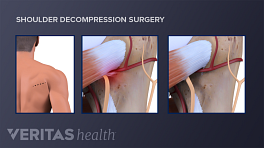Surgeons use one of three surgical options for repairing rotator cuff tears: open repair, arthroscopic repair, and mini-open repair, which combines both open and arthroscopic techniques.
In This Article:
- Rotator Cuff Tear Surgery
- Who Can Have Rotator Cuff Surgery?
- What to Do Before Rotator Cuff Surgery
- Different Types of Rotator Cuff Surgery
- Rotator Cuff Surgery Recovery
- Rotator Cuff Surgery Risks and Complications
Open Rotator Cuff Repair
Open rotator cuff surgery involves a larger incision for direct tendon intervention.
This technique involves an open surgical incision several centimeters long over the shoulder. The surgeon separates the shoulder muscle to get near the torn tendon to repair it.
Open repair surgery is recommended for:
- People with large or complicated tears, and
- People who need reconstruction procedures, such as tendon transfers.
A tendon transfer is surgical option used in severe rotator cuff injuries, in which the damaged tendon is unable to be reattached to the top of the humerus. In this case, a tendon from a different location in the body—typically the latissimus dorsi tendon in the back—is used to repair the rotator cuff.
During this procedure the surgeon may also remove bone spurs (osteophytes), which are a sign of osteoarthritis and can sometimes cause shoulder pain or affect shoulder joint function.
Arthroscopic Rotator Cuff Repair
Arthroscopic repair is often used for patients with small- to medium-sized tears (about 3 cm or smaller). It is an outpatient procedure and the least invasive of the three rotator cuff repair options.
See Decompression Surgery for Shoulder Impingement
Unlike open repair, arthroscopic surgery involves small incisions, each about a centimeter long. For the patient, this means:
- Shorter recovery
- Less pain
- A decreased risk of complications
See Shoulder Decompression: Arthroscopy vs Open Surgery
During this surgery, the surgeon inserts a small camera and surgical instruments through small incisions.
Mini-Open Rotator Cuff Repair
Mini-open repair uses both arthroscopic and open surgery techniques. Arthroscopy is used to evaluate the injury, trim away bone spurs, and remove loose cartilage. Next, a 1 to 5 inch incision is made to give the surgeon direct visual access to repair the tear.
The mini-open procedure is less invasive than the open repair. Whereas open repair surgery requires detaching the shoulder muscle (deltoid), arthroscopic and mini-open repairs do not.
The combined arthroscopic and open surgery technique may be recommended for people who have torn more than one rotator cuff tendon. 1 S. Terry Canale MD, James H. Beaty MD. Campbell's Operative Orthopaedics: Pt. XVI. Peripheral nerve injuries. Peripheral nerve injuries. Mosby; 2013.
Which Surgery is Best?
Open, mini-open, and arthroscopic surgeries yield similar results regarding relief of pain, strength improvement, and function of the rotator cuff. 2 Rotator Cuff Tears: Surgical Treatment Options. American Academy of Orthopedic Surgeons website. http://orthoinfo.aaos.org/topic.cfm?topic=a00406 Last reviewed May 2011. Accessed April 20, 2016. The type of surgery chosen depends on several factors: 2 Rotator Cuff Tears: Surgical Treatment Options. American Academy of Orthopedic Surgeons website. http://orthoinfo.aaos.org/topic.cfm?topic=a00406 Last reviewed May 2011. Accessed April 20, 2016.
- Size of tear
- Patient’s anatomy
- Condition of the patient’s tendons, tissues, and bones
- The surgeon’s experience and familiarity with treatment options
All three surgical approaches typically involve these general steps:
- Eliminating fragments or debris in the rotator cuff region.
- Creating space for the rotator cuff tendons, thereby preventing strain or inflammation.
- Stitching torn edges of the shoulder’s top tendon (supraspinatus) together, and adhering it to the top of the humerus bone in the arm.
The primary goal of surgery is to reduce shoulder pain, with a secondary goal to restore shoulder function. 1 S. Terry Canale MD, James H. Beaty MD. Campbell's Operative Orthopaedics: Pt. XVI. Peripheral nerve injuries. Peripheral nerve injuries. Mosby; 2013. Most rotator cuff surgeries are outpatient, meaning the patient is not required to stay in the hospital or surgical center overnight.
- 1 S. Terry Canale MD, James H. Beaty MD. Campbell's Operative Orthopaedics: Pt. XVI. Peripheral nerve injuries. Peripheral nerve injuries. Mosby; 2013.
- 2 Rotator Cuff Tears: Surgical Treatment Options. American Academy of Orthopedic Surgeons website. http://orthoinfo.aaos.org/topic.cfm?topic=a00406 Last reviewed May 2011. Accessed April 20, 2016.
